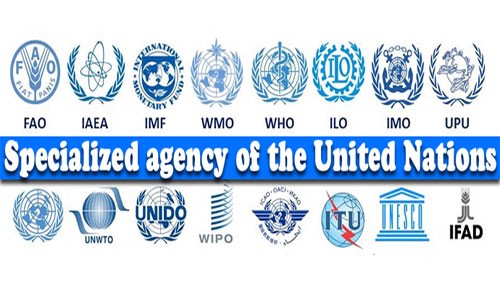By Asmau Ahmad
The Food and Agriculture Organisation (FAO), International Monetary Fund (IMF), World Bank Group, World Food Programme, and World Trade Organisation have called for urgent action to address the global food security crisis.
This is contained in a joint statement issued by the Director-General, FAO, Qu Dongyu; Managing Director, IMF, Kristalina Georgieva; President, WBG, David Malpass; Executive Director, WFP, David Beasley and Director-General, WTO, Dr Ngozi Okonjo-Iweala.
The groups said the war in Ukraine continues to worsen global food security and nutrition crisis, triggering higher volatility in energy, food and fertiliser prices.
They stated that inspite of the reprieve in global food prices and the resumption of grain exports from the Black Sea, food remained beyond reach for many due to high prices and weather shocks.
They said the number of people facing acute food insecurity worldwide is expected to continue to rise.
Fertiliser markets, they said, remained volatile, especially in Europe, where tight natural gas supplies and high prices had caused many producers of urea and ammonia to stop operations.
“We welcome the efforts of the Global Crisis Response Group and the Black Sea Grain Initiative: through the Joint Coordination Centre, over three million metric tons of grain and foodstuffs have already been exported from Ukraine.
” We are encouraged by the downward trend of trade-restrictive measures implemented by countries and hope that the trend continues, ” they said.
The World Bank is implementing its $30 billion programme to respond to the food security crisis and front-loading resources from the IDA20 Crisis Response Window.
The leaders added that the IMF was proposing a new food shock window within the IMF emergency lending instruments.
“The FAO has proposed a series of policy recommendations and launched detailed soil nutrition maps at country level to increase efficiencies in the use of fertilisers.
“Maintaining momentum on these fronts and building resilience for the future would require a continued comprehensive and coordinated effort to support efficient production and trade, and improve transparency.
“Also, to accelerate innovation and joint planning and invest in food systems transformation,” they said.
In terms of supporting efficient production and trade, they said, governments in all countries need to urgently re-examine their agricultural trade and market interventions, such as subsidies and export restrictions.
“This would help to identify and minimise distortions. In terms of improving transparency, food market monitoring must be supplemented with transparent tracking of financing by the international community to respond to the food crisis.
“Governments should provide necessary data and resources to support Agricultural Market Information System, which enhances transparency in food markets through monitoring the prices and availability of major food crops and promoting policy responses,” they noted.
Addressing both infrastructure bottlenecks and input supply bottlenecks, for example, fertilizers and seeds, they said are critical to an efficient food supply system.
“Effective and sustainable support to smallholder farmers will be vital to ensure they are part of the solution and to localise supply chains.
“We remain committed to working together to address immediate food security and nutrition needs, tackle structural market issues that may exacerbate adverse impacts, and build countries’ resilience to prevent and mitigate the impacts of future.”




